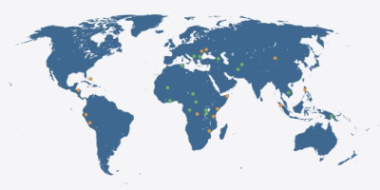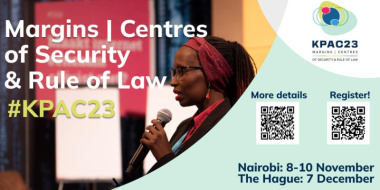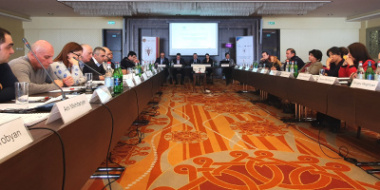Evaluation of the project "Supporting Justice Sector and Anti-Corruption Reforms in Ukraine - Phase 1"
As part of IDLO’s continuous commitment to accountability and results-based management, IDLO is pleased to share this Evaluation Brief (summarised evaluation report): “Evaluation of the project "Supporting Justice Sector and Anti-Corruption Reforms in Ukraine - Phase 1”. The evaluation has been conducted by independent evaluation experts, supervised by IDLO’s Evaluation Unit.
















